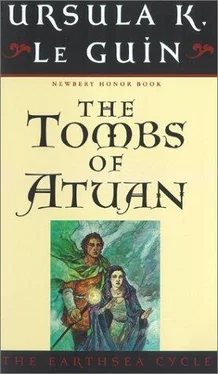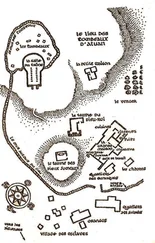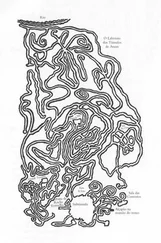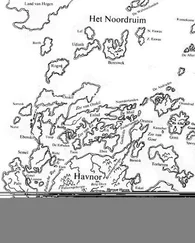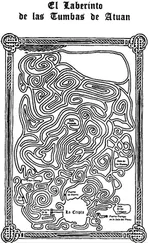Ursula Le Guin - The Tombs of Atuan
Здесь есть возможность читать онлайн «Ursula Le Guin - The Tombs of Atuan» весь текст электронной книги совершенно бесплатно (целиком полную версию без сокращений). В некоторых случаях можно слушать аудио, скачать через торрент в формате fb2 и присутствует краткое содержание. Жанр: Фэнтези, на английском языке. Описание произведения, (предисловие) а так же отзывы посетителей доступны на портале библиотеки ЛибКат.
- Название:The Tombs of Atuan
- Автор:
- Жанр:
- Год:неизвестен
- ISBN:нет данных
- Рейтинг книги:3 / 5. Голосов: 1
-
Избранное:Добавить в избранное
- Отзывы:
-
Ваша оценка:
- 60
- 1
- 2
- 3
- 4
- 5
The Tombs of Atuan: краткое содержание, описание и аннотация
Предлагаем к чтению аннотацию, описание, краткое содержание или предисловие (зависит от того, что написал сам автор книги «The Tombs of Atuan»). Если вы не нашли необходимую информацию о книге — напишите в комментариях, мы постараемся отыскать её.
The Tombs of Atuan — читать онлайн бесплатно полную книгу (весь текст) целиком
Ниже представлен текст книги, разбитый по страницам. Система сохранения места последней прочитанной страницы, позволяет с удобством читать онлайн бесплатно книгу «The Tombs of Atuan», без необходимости каждый раз заново искать на чём Вы остановились. Поставьте закладку, и сможете в любой момент перейти на страницу, на которой закончили чтение.
Интервал:
Закладка:
He was as far beyond her as the sea.
Where was he now, on what way of the spirit did he walk? She could never follow him.
He had made her follow him. He had called her by her name, and she had come crouching to his hand, as the little wild desert rabbit had come to him out of the dark. And now that he had the ring, now that the Tombs were in ruin and their priestess forsworn forever, now he didn't need her, and went away where she could not follow. He would not stay with her. He had fooled her, and would leave her desolate.
She reached down and with one swift gesture plucked from his belt the little steel dagger she had given him. He moved no more than a robbed statue.
The dagger blade was only four inches long, sharp on one side; it was the miniature of a sacrificial knife. It was part of the garments of the Priestess of the Tombs, who must wear it along with the ring of keys, and a belt of horsehair, and other items some of which had no known purpose. She had never used the dagger for anything, except that in one of the dances performed at dark of the moon she would throw and catch it before the Throne. She had liked that dance; it was a wild one, with no music but the drumming of her own feet. She had used to cut her fingers, practicing it, till she got the trick of catching the knife handle every time. The little blade was sharp enough to cut a finger to the bone, or to cut the arteries of a throat. She would serve her Masters still, though they had betrayed her and forsaken her. They would guide and drive her hand in the last act of darkness. They would accept the sacrifice.
She turned upon the man, the knife held back in her right hand behind her hip. As she did so he raised his face slowly and looked at her. He had the look of one come from a long way off, one who has seen terrible things. His face was calm but full of pain. As he gazed up at her and seemed to see her more and more clearly, his expression cleared. At last he said, “Tenar,” as if in greeting, and reached up his hand to touch the band of pierced and carven silver on her wrist. He did this as if reassuring himself, trustingly. He did not pay attention to the dagger in her hand. He looked away, at the waves, which heaved deep over the rocks below, and said with effort, “It's time… Time we were going.”
At the sound of his voice the fury left her. She was afraid.
“You'll leave them behind, Tenar. You're going free now,” he said, getting up with sudden vigor. He stretched, and belted his cloak tight again. “Give me a hand with the boat. She's up on logs, for rollers. That's it, push… again. There, there, enough. Now be ready to hop in when I say `hop.' This is a tricky place to launch from– once more. There! In you go!”-and leaping in after her, he caught her as she overbalanced, sat her down in the bottom of the boat, braced his legs wide, and standing to the oars sent the boat shooting out on an ebb wave over the rocks, out past the roaring foam-drenched head of the cape, and so to sea.
He shipped the oars when they were well away from shoal water, and stepped the mast. The boat looked very small, now that she was inside it and the sea was outside it.
He put up the sail. All the gear had a look of long, hard use, though the dull red sail was patched with great care and the boat was as clean and trim as could be. They were like their master: they had gone far, and had not been treated gently.
“Now,” he said, “now we're away, now we're clear, we're clean gone, Tenar. Do you feel it?”
She did feel it. A dark hand had let go its lifelong hold upon her heart. But she did not feel joy, as she had in the mountains. She put her head down in her arms and cried, and her cheeks were salt and wet. She cried for the waste of her years in bondage to a useless evil. She wept in pain, because she was free.
What she had begun to learn was the weight of liberty. Freedom is a heavy load, a great and strange burden for the spirit to undertake. It is not easy. It is not a gift given, but a choice made, and the choice may be a hard one. The road goes upward towards the light; but the laden traveler may never reach the end of it.
Ged let her cry, and said no word of comfort; nor when she was done with tears and sat looking back towards the low blue land of Atuan, did he speak. His face was stern and alert, as if he were alone; he saw to the sail and the steering, quick and silent, looking always ahead.
In the afternoon he pointed rightward of the sun, towards which they now sailed. “That is Karego-At,” he said, and Tenar following his gesture saw the distant loom of hills like clouds, the great island of the Godking. Atuan was out of sight behind them. Her heart was very heavy. The sun beat in her eyes like a hammer of gold.
Supper was dry bread, and dried smoked fish, which tasted vile to Tenar, and water from the boat's cask, which Ged had filled at a stream on Cloud Cape beach the evening before. The winter night came down soon and cold upon the sea. Far off to northward they saw for a while the tiny glitter of lights, yellow firelight in distant villages on the shore of Karego-At. These vanished in a haze that rose up from the ocean, and they were alone in the starless night over deep water.
She had curled up in the stern; Ged lay down in the prow, with the water cask for a pillow. The boat moved on steadily, the low swells slapping her sides a little, though the wind was only a faint breath from the south. Out here, away from the rocky shores, the sea too was silent; only as it touched the boat did it whisper a little.
“If the wind is from the south,” Tenar said, whispering because the sea did, “doesn't the boat sail north?”
“Yes, unless we tack. But I've put the mage-wind in her sail, to the west. By tomorrow morning we should be out of Kargish waters. Then I'll let her go by the world's wind.”
“Does it steer itself?”
“Yes,” Ged replied with gravity, “given the proper instructions. She doesn't need many. She's been in the open sea, beyond the farthest isle of the East Reach; she's been to Selidor where Erreth-Akbe died, in the farthest West. She's a wise crafty boat, my Lookfar. You can trust her.”
In the boat moved by magic over the great deep, the girl lay looking up into the dark. All her life she had looked into the dark; but this was a vaster darkness, this night on the ocean. There was no end to it. There was no roof. It went on out beyond the stars. No earthly Powers moved it. It had been before light, and would be after. It had been before life, and would be after. It went on beyond evil.
In the dark, she spoke: “The little island, where the talisman was given you, is that in this sea?”
“Yes,” his voice answered out of the dark. “Somewhere. To the south, perhaps. I could not find it again.”
“I know who she was, the old woman who gave you the ring.”
“You know?”
“I was told the tale. It is part of the knowledge of the First Priestess. Thar told it to me, first when Kossil was there, then more fully when we were alone; it was the last time she talked to me before she died. There was a noble house in Hupun who fought against the rise of the High Priests in Awabath. The founder of the house was King Thoreg, and among the treasures he left his descendants was the half-ring, which Erreth-Akbe had given him.”
"That indeed is told in the Deed of Erreth-Akbe. It says… in your tongue it says, `When the ring was broken, half remained in the hand of the High Priest Intathin, and half in the hero's hand. And the High Priest sent the broken half to the Nameless, to the Ancient of the Earth in Atuan, and it went into the dark, into the lost places. But Erreth-Akbe gave the broken half into the hands of the maiden Tiarath, daughter of the wise king, saying: "Let it remain in the light, in the maiden's dowry, let it remain in this land until it be rejoined." So spoke the hero before he sailed to the west.' "
Читать дальшеИнтервал:
Закладка:
Похожие книги на «The Tombs of Atuan»
Представляем Вашему вниманию похожие книги на «The Tombs of Atuan» списком для выбора. Мы отобрали схожую по названию и смыслу литературу в надежде предоставить читателям больше вариантов отыскать новые, интересные, ещё непрочитанные произведения.
Обсуждение, отзывы о книге «The Tombs of Atuan» и просто собственные мнения читателей. Оставьте ваши комментарии, напишите, что Вы думаете о произведении, его смысле или главных героях. Укажите что конкретно понравилось, а что нет, и почему Вы так считаете.
